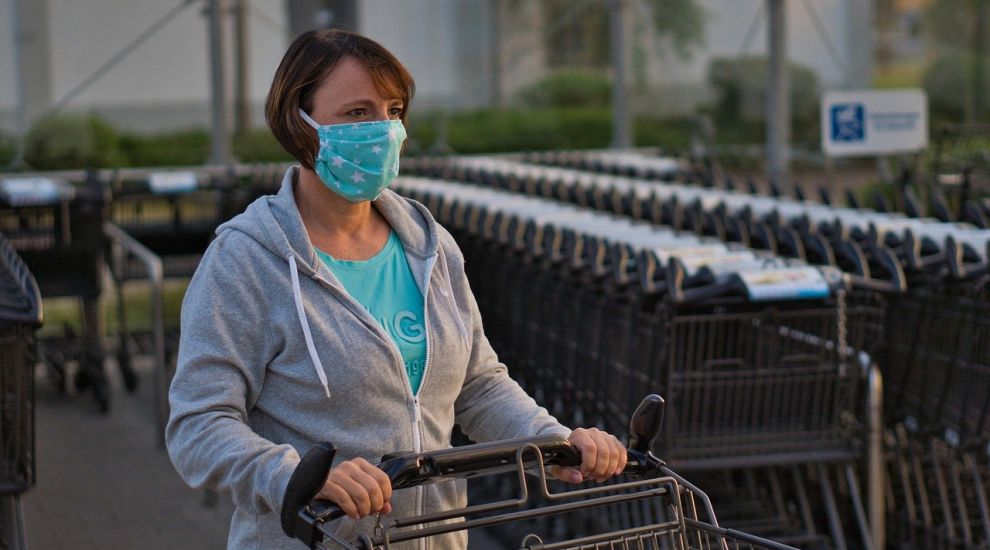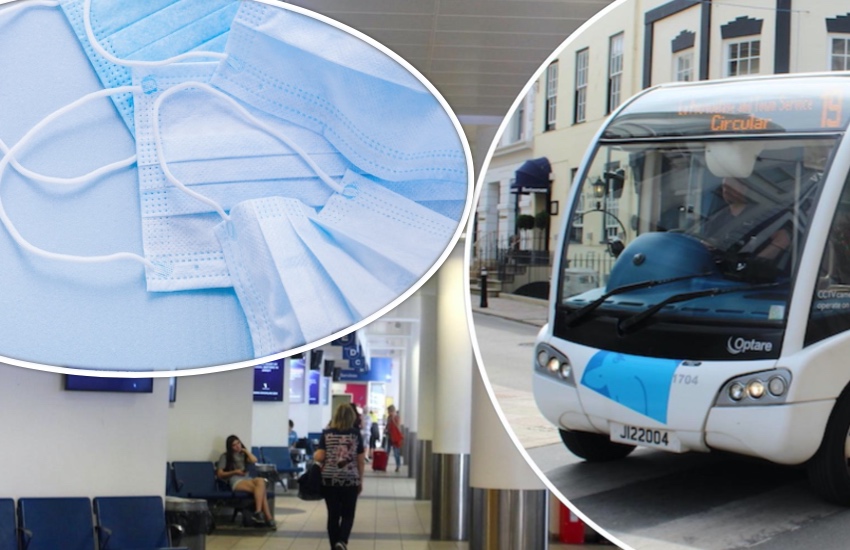

States Members have voted to give the Health Minister the power to limit gatherings and make people wear masks.
A large majority supported the move to temporarily give Deputy Richard Renouf the new powers.
A number, however, said they felt "uncomfortable" at endorsing such an encroachment of state power on the everyday lives of islanders.
Their decision brings in enabling legislation, so does not mean that Islanders will suddenly be forced to don a mask or face fines of £1,000 if they refuse to wear one, but Deputy Richard Renouf has already said that he will bring in enacting orders imminently, and certainly before the pre-Christmas busy period.
The Government is aware that it is walking a tightrope between public safety and civil liberties, and this is reflected in the legislation, which gives the Minister the power to carve out non-medical exemptions to orders.
The law explains that issues such as "discomfort" will be "taken into account in developing mitigations and alongside exemptions and alternatives in developing policy and guidance for mask use."
Shop staff are not expected to force customers to wear a mask if someone refuses to put one on, but further guidelines for businesses are being drawn up and the police could be called to enforce the law.
However, Ministers expect that these cases will be few and far between, with most people and businesses adhering to the rules, either willingly or through reluctance to face a penalty. They are prepared to bring in more prescriptive measure should non-compliance become a problem.
In short, all people aged 12 and over will soon be obliged to wear a mask in all shops, including banks, post offices and the indoor covered market; at Liberation Station, in bus shelters, at the Harbour and Airport terminals; in care settings, such as chiropractors and nursing homes; and in work settings where there is close contact, such as tattooists, hairdressers and nail bars.

Pictured: Wearing a mask will be obligatory at the bus station, as well as the Airport and Harbour.
Those businesses currently required by guidance to collect contact tracing information will now have to by law, and the present rules on gatherings will also be legally enforceable.
In a full day of debate, many States Members, although most supporting the enabling powers, sought assurances that they would not last a day longer than they have to. By law, they run out at the end of March.
They also demanded that any enforcement was proportionate, something that the Health Minister agreed with. And addressing concerns about the efficacy of masks, Deputy Renouf said: “I am not suggesting that mask wearing is a panacea on its own; it is part of wider response to the pandemic, which put together with everything else we are going, will have an effect.
“There is argument as to whether mask wearing does have that effect but the balance of evidence of that it does reduce transmission of the virus. Things also change and this is a new virus. What we knew in the spring is nothing to what scientists know now about the nature of covid-19. The preponderance of evidence is that this masks have a beneficial effect.”

Pictured: Enforcement officers such as the police will have the power to break up gatherings that are deemed to not follow the covid guidelines.
Armed with enabling powers, the Minister is expected to soon pass orders that will allow gatherings of up to ten people to be held without any restrictions. This number includes children.
Gatherings above ten people will be able to be disbanded if the behaviour is considered to create a greater risk of covid transmission.
The regulations specify the relevant factors are:
If one of these risk factors is present, then an enforcement office may – but not must - take action to disperse the gathering.
Applying the current guidelines, groups up 20 people can gather in a “formal environment”, which could be a hall or a table in a restaurant, and up to 40 people can gather for outdoor events and at a funeral, providing they all follow the hygiene and social distancing rules. Gatherings above those maximum numbers will be able to be disbanded by law.
These numbers, however, could be subsequently varied by the Minister based on recommendations from his health advisers.
No restriction can be placed on children aged below 12 years old.
To be fined up to £1,000, a person must firstly be part of a gathering that an enforcement officer believes is contravening a gathering control order, by virtue of its size or characteristics, and, secondly, they must deliberately refuse to comply.
Comments
Comments on this story express the views of the commentator only, not Bailiwick Publishing. We are unable to guarantee the accuracy of any of those comments.